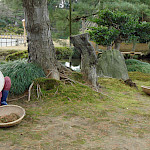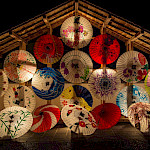6 Jun 2024
JETAA News
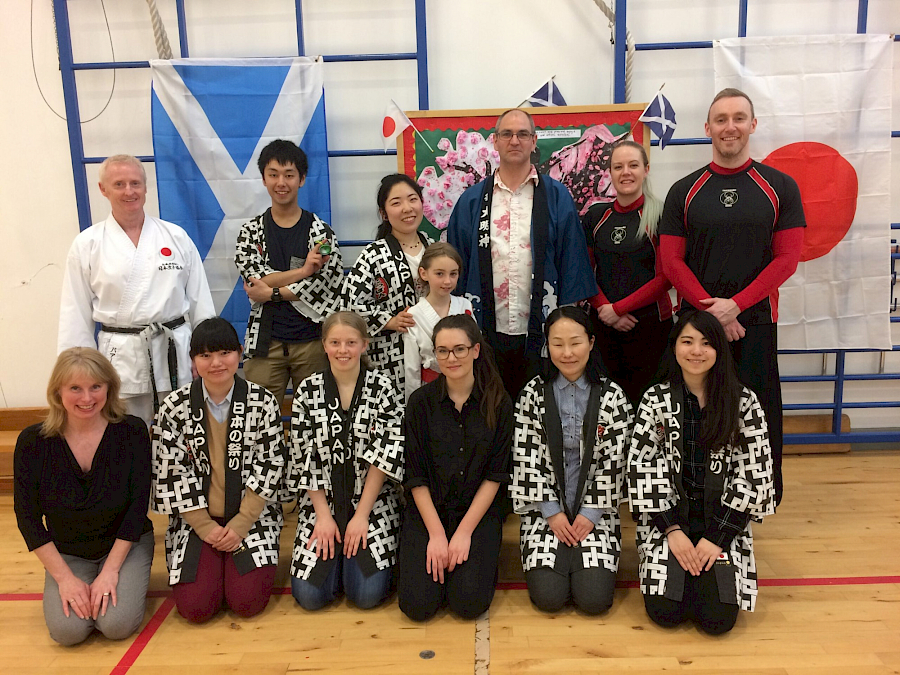
19th May 2023
JET Spotlight: James Gamgee
James Gamgee is a Learning and Development manager at the Scottish Government, has been studying Psychology since 2017, and is one of the main organisers of the Fuji Festival. The Festival is an educational project to promote fun study days on Japanese culture in schools.
Why did you decide to go on the JET programme?
The JET programme, for me, was a really exciting next step from studying Japanese at Stirling University. My Japanese teacher, professor Hazakawa had told me about it. I put "Rural South" down because I figured I'd get myself some serious sunshine after years at Stirling University, and they absolutely delivered on that. They sent me to Amami Ōshima, which is in Kagoshima prefecture. It's the last bit of Kagoshima before you get to Okinawa.
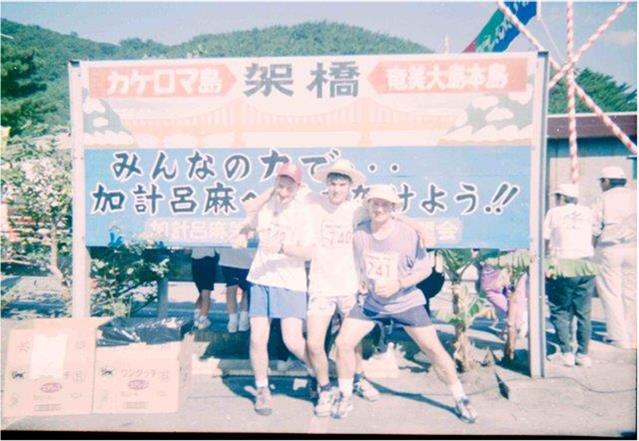
Why did you want to live Japan specifically?
My interest in Japan started when I was about twelve, studying Karate. I was also into things like James Clavell's, Shogun and others from an early age. When it came time to pick a subject for university, Japanese was right up there for me. I spent three years studying Japanese at Stirling, which was brilliant. I met lots of Japanese people who studied alongside us at Stirling. It all, kind of, snowballed from there.
What were your best JET memories?
There were so many. Amami Ōshima is a tropical paradise. I remember learning to scuba dive. The coral and tropical fish! I don't think I had seen anything with that colour-scape before. It was strikingly beautiful. I spent many hours snorkelling and scuba diving, and made friends who were fellow scuba divers.
Amami Ōshima has its own language called island dialect, or Shimaguchi. It really doesn't sound like standard Japanese. I tried to learn a bit of this dialect, and my friend thought this was very funny. One thing led to another, and I entered an island dialect speaking competition. That was held in the big city up north on the island, and they put me on telly. I dressed up in traditional island clothing. It was very incongruous for everyone to see this young westerner speaking island dialect.
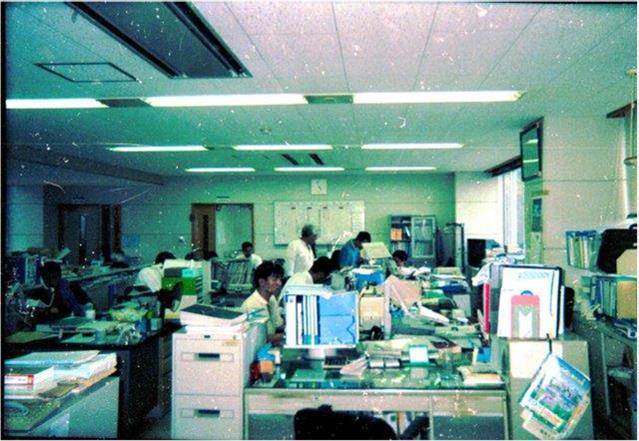
What Challenges did you face whilst you were there?
There were lots of aspects of Japanese life I was not at all familiar with. One time, for example, I was running a bit late for the boat. I dashed out of the town hall towards the harbour, and my supervisor leaned out the window and shouted, "You need to hurry up!" I interpreted that as an odd thing to do and something that suggested that he was cross. It was only later that I learnt when you're running late in Japan, people will shout at you "Please hurry up", and they mean " I hope you get there on time". There were lots of cultural misunderstandings that really confused me.
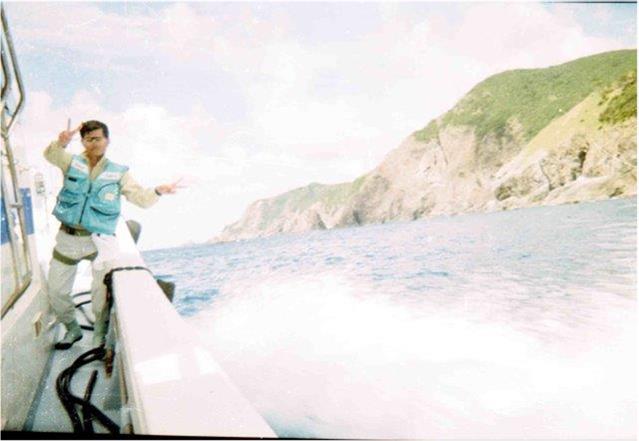
How did your career progress after JET?
I've had a lot of different Jobs. I feel that, where going on JET and studying Japanese helped me was proving to companies that I could do something difficult. The fact that I understood Japanese and had lived in Japan, convinced people that I could learn something quite difficult, and that helped me to get into the field of analytical software and data analytics.
How did you stay connected to Japanese culture when you returned to the UK?
My connection with Japan has waxed and waned. The next big thing there was going back as a software consultant and working on an IT project. It was really moving to Scotland and getting involved with JETAA Scotland where I started to have more regular contact with people who had been to Japan and things sort of broadened, and that's how I got involved with things like the fuji festival.
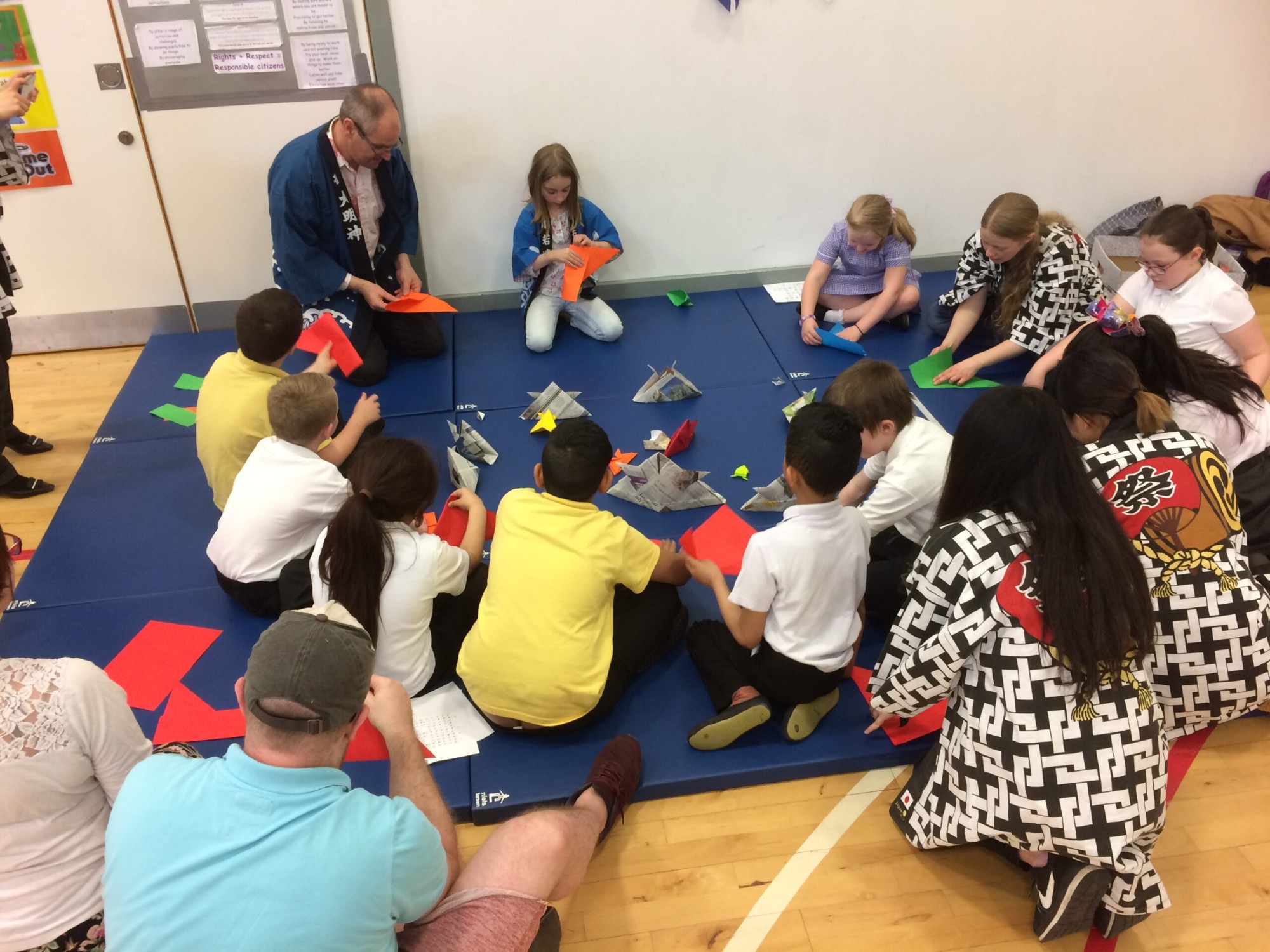
Getting involved with the Fuji Festival was through JETAA?
I was on the committee for a while, and my daughter started school; then I started to think how could we create a Japan-themed event at my daughter's school? So that was a collaboration between me and my daughter, who was about 5 at the time.
We worked together to design an event that we executed, and we got support from different local businesses, for example, a local sushi maker and support from Japan special interest groups like Sakumi Taiko and the Japan Karate Association.
That made a really good event, and I started to wonder how I could make it more of an event with a social mission. We targeted areas with multiple deprivations and went to schools in those areas.
Each time over the four years, we expanded and played with the format of the fuji festival. One year it was targeting ten different year groups, for example, year 7s were about to do typing. Dexterity was a big issue, so we worked with the school to develop some origami sessions. With other years groups it was more about a drama themed on Japan, so people learned a growth mindset. The Japanese interpretation is shuguo, practicing and getting better. For other year groups, it was more around food. So, that was one year that we tried to have something for every year group and the parents.
As a spin-off to all that, we produced a website which has resources. The hope for the website is that it is a toolkit for returning JETs to be able to visit schools in their local area. You can go to the website and find a template letter to send to your local school, and you can also find lots of resources, PowerPoints and activities ideas. You can download these and use them when you visit your local school in order to present back to a UK school about your time in Japanese schools.
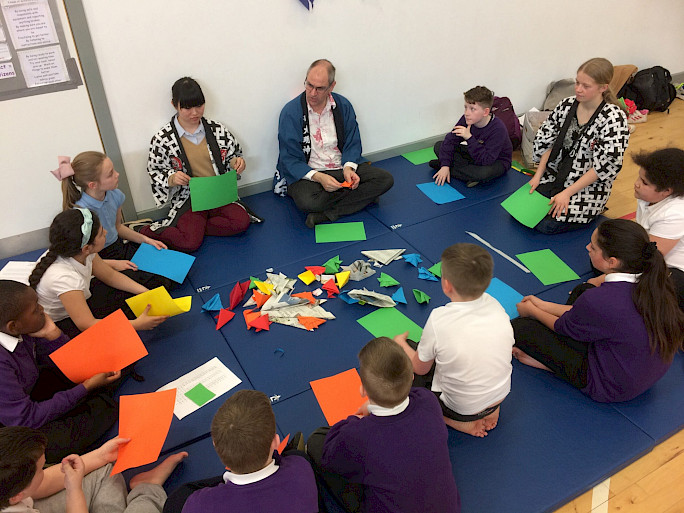
How about your current academic work?
These days I'm a Learning and Development manager at the Scottish government, and I have been studying Psychology since 2017 alongside my work. The first qualification I received was an MSC in Psychology, and that has been really fascinating. The dissertation has been published by a Sage family journal. The study got listed for a poster competition at a conference. I got to talk about my study, which was about mild traumatic brain injury and the impact of that on families.
The study I'm doing currently is an MSC in Business Psychology with Coaching at Heriot Watt University. That has included a module on Intercultural Communication which has been absolutely fascinating and brought me right back to my time on JET. It's been about not just the linguistics but the cultural aspect of how organisations work and how individuals navigate organisations. It's been fascinating thinking about my time on JET through that Lens, having now studied a bit about how people navigate different cultures.
I think going on JET helped me to understand my own British culture. You go to Japan; you see how different things are, you come back to the UK, and you're reminded of lots of differences. My studies on intercultural communication kind of formalised that and helped me to understand how those differences can best be navigated in, for example, a work environment and what the impact of working in a cross-cultural setting might be.
I'm looking forward to completing my studies and adding coaching to my work toolkit, particularly coaching psychology. I'm just about to embark on a study on the role of trust in positive workplace coaching outcomes. It'll be interesting to see how that goes.







